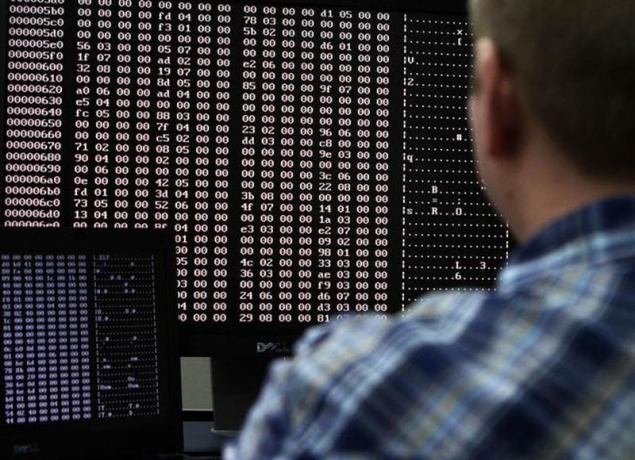- Home
- Internet
- Internet News
- Premier FBI Cyber Squad in US Rewarded With More Manpower
Premier FBI Cyber-Squad in US Rewarded With More Manpower

The FBI's premier cyber-squad has focused attention on computer-based crime in recent months by helping prosecutors charge five Chinese army intelligence officials with stealing trade secrets from major companies and by snaring a Russian-led hacking ring that pilfered $100 million from bank accounts worldwide.
Because of the Pittsburgh squad's success, the FBI is rewarding the office with more manpower, allowing it to take on even more cyber-threats.
"Where there's great work going on, invest in it," FBI Director James Comey said while visiting Pittsburgh two weeks ago.
Because of security concerns, the FBI won't say how many agents are in the Pittsburgh cyber-office or specify how many agents will be added. However, the FBI's overall 2014 budget includes 152 new cybercrime positions, including 50 new agents and 50 computer scientists, as part of the agency's "Next Generation Cyber" initiative. In fiscal 2015, which begins Oct. 1, the FBI hopes to maintain about 750 cyber-agents across the country out of more than 13,000 overall.
(Also See: China Launching 'Severe' Cyber Attacks on Taiwan: Minister)
The Pittsburgh cyber-squad's growth makes it more likely it will become involved in cases that could redefine the legal concepts of privacy and other civil rights, said Bruce Antkowiak, a former Pittsburgh federal prosecutor who now teaches law at St. Vincent College.
People using the Internet "understand that you are accessing to the world so much of your personal information," Antkowiak said. "But that cannot mean, in a society that holds itself to be free, that we no longer have privacy."
Special-Agent-in-Charge Scott S. Smith said Pittsburgh's squad has developed "a model approach to investigating and preventing cybercrime" in partnership with U.S. Attorney David Hickton, private tech business and academics, such as the computer science experts at Carnegie Mellon University.
In Pittsburgh, such networking resulted in Scottish cyber-terrorist Adam Stuart Busby being indicted on charges of emailing bomb threats to the University of Pittsburgh in the spring of 2012. Those charges are pending.
The Pitt bomb threats were originally investigated by the Pittsburgh FBI's domestic terrorism squad but then the cyber-squad stepped in. Busby was charged with emailing additional bomb threats using the alias "The Threateners" that demanded the university rescind a $50,000 reward over the original threats.
Comey acknowledged that tracking emails - and other methods used to thwart cybercrime - makes questions of civil liberties increasingly important. Then again, those issues are as old as the FBI itself, Comey said.
The modern FBI was born in the 1920s when new technology - automobiles and asphalt - "created a whole new class of criminals who could travel distances that no one had ever heard of before, commit crimes at breath-taking speed," Comey said.
(Also See: Companies Worried About Damage, Disruption by Cyber-Attacks: KPMG India)
Criminals using today's information superhighway "is that times a million," Comey said.
Still, Comey believes it will be possible to patrol cyberspace without sacrificing privacy and other civil rights, though how to do that remains an open, and evolving, question.
"We have to patrol it in a way that is transparent to good people and scary to bad people," Comey said.
"I'm a great believer that people should be skeptical of government power," Comey said. "I am. I think the country was built by people who were."
Get your daily dose of tech news, reviews, and insights, in under 80 characters on Gadgets 360 Turbo. Connect with fellow tech lovers on our Forum. Follow us on X, Facebook, WhatsApp, Threads and Google News for instant updates. Catch all the action on our YouTube channel.
Related Stories
- Samsung Galaxy Unpacked 2026
- iPhone 17 Pro Max
- ChatGPT
- iOS 26
- Laptop Under 50000
- Smartwatch Under 10000
- Apple Vision Pro
- Oneplus 12
- OnePlus Nord CE 3 Lite 5G
- iPhone 13
- Xiaomi 14 Pro
- Oppo Find N3
- Tecno Spark Go (2023)
- Realme V30
- Best Phones Under 25000
- Samsung Galaxy S24 Series
- Cryptocurrency
- iQoo 12
- Samsung Galaxy S24 Ultra
- Giottus
- Samsung Galaxy Z Flip 5
- Apple 'Scary Fast'
- Housefull 5
- GoPro Hero 12 Black Review
- Invincible Season 2
- JioGlass
- HD Ready TV
- Latest Mobile Phones
- Compare Phones
- Tecno Pova Curve 2 5G
- Lava Yuva Star 3
- Honor X6d
- OPPO K14x 5G
- Samsung Galaxy F70e 5G
- iQOO 15 Ultra
- OPPO A6v 5G
- OPPO A6i+ 5G
- Asus Vivobook 16 (M1605NAQ)
- Asus Vivobook 15 (2026)
- Brave Ark 2-in-1
- Black Shark Gaming Tablet
- boAt Chrome Iris
- HMD Watch P1
- Haier H5E Series
- Acerpure Nitro Z Series 100-inch QLED TV
- Asus ROG Ally
- Nintendo Switch Lite
- Haier 1.6 Ton 5 Star Inverter Split AC (HSU19G-MZAID5BN-INV)
- Haier 1.6 Ton 5 Star Inverter Split AC (HSU19G-MZAIM5BN-INV)







![[Partner Content] OPPO Reno15 Series: AI Portrait Camera, Popout and First Compact Reno](https://www.gadgets360.com/static/mobile/images/spacer.png)









